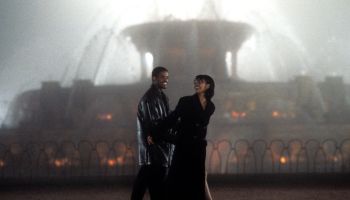A New Day, A New Way
The beauty of historically black colleges and universities since their inception has been their practicality. There was a need for black people to be trained to become professional teachers like nurses and doctors, and these institutions were created to fulfill that need. It wasn’t about a lot of the things that higher education later came to be about – social acceptance, prestige, sports, sororities/fraternities, campus life, etc. It was about becoming adept at a particular trade or profession so that upon completion, you could enter a field and make a living that was an improvement over the living you could make had you not gone to college.
Before the Civil War, few blacks received any kind of formal schooling, and almost none were able to get a higher education. After slavery was abolished, a movement spread to emphasize the need for schools to provide training in sciences, agriculture and engineering. Alcorn State University in Mississippi was the first to be designated as a black land-grant college. By 1890, there were 16 exclusively black institutions that received land-grant funds, and between 1861 and 1870, the America Missionary Association and the Freedman’s Bureau founded seven black colleges and 13 teaching schools.
Booker T. Washington, who was a graduate of Hampton (Normal and Agricultural Institute), believed that blacks should be prepared to do skilled trades. When he started my alma mater, Tuskegee Institute, he made it famous for agricultural and mechanical trades.
But W.E.B. DuBois thought liberal arts for blacks were as important as vocational training. In fact, he thought that universal vocational training perpetuated the idea of servitude. He wanted blacks to concentrate more on the arts and sciences.
Thankfully, HBCUs embraced both ways of thinking. HBCUs flourished and got financial support from the government and philanthropists and began to get accreditation from the Southern Association of Colleges in 1928.
The United Negro College Fund, Brown Vs. Board of Education, the Higher Education Act and the Tom Joyner Foundation all have been positive for HBCUs.
But, of course, there have been a whole lot of challenges, too. In 1992, a Supreme Court ruling required that Mississippi do away with a dual, segregated system of education. At the time, the impact of that decision wasn’t directly felt by HCBUs, but we knew it would be a matter of time before they would be accused of reverse discrimination.
The latest blow to my beloved HBCUs is that Haley Barbour, the governor of Mississippi, wants to merge HBCUs Alcorn State and Mississippi Valley State into Jackson State, making them all one. The schools would stay open but would lose their independence.
Sadly, some of the very things that are right with HBCUs are adding to their downfall. HBCUs disproportionately enroll low-income minority students, compared to other institution of higher learning. That means they carry the extra burden of trying to find necessary funding for these students. The governor’s goal is to save by cutting costs, when one of the real needs is spending more to keep these doors open.
But we’ve seen this coming for a while, and even if it doesn’t happen, it’s clear that in these tough times, the government spending to help HBCUs is not on the front burner. I always say that we cannot lean solely on any outside entity to save us. No one will fight for us like us. Years ago, we should have begun coming up with a plan to make our schools more competitive with mainstream colleges and universities. Some colleges have succeeded, but others have not.
We have to change with the world, and one major shift is that the idea of the majority of black students graduating from high school and making plans to spend the next four years living on campus at an HBCU is behind us. Trade schools, the military, online universities and the streets are all competing for African-American high school graduates. In fact, more black students are receiving an online education at the University of Phoenix than at any HBCU. So, in my mind, it’s time to get back to being practical.
We can dream that HBCUs will suddenly find a way to drastically improve their enrollment doing things the same old way, or we can offer today’s student a choice that is better than the options they have now. That’s why I’m launching an online HBCU that will provide students an online education, as well as an opportunity to graduate from an HBCU.
Our goal is to take a virtual education and make it an HBCU experience: Nurturing, caring and rich with heritage. I’m just trying to figure out a way to include virtual football games, half-time shows and spades games!
I will lay out the entire plan soon, but I hope all of us who love HBCUs will continue to be forward-thinking and willing to look at new and exciting ways to educate African-Americans while preserving all the wonderful qualities only an HBCU can offer. Our online university guarantees HBCUs a place in the future as we proudly hold on to the legacy our ancestors left us. I think Booker T. and W.E.B. would approve.
We have to change with the world, and one.













